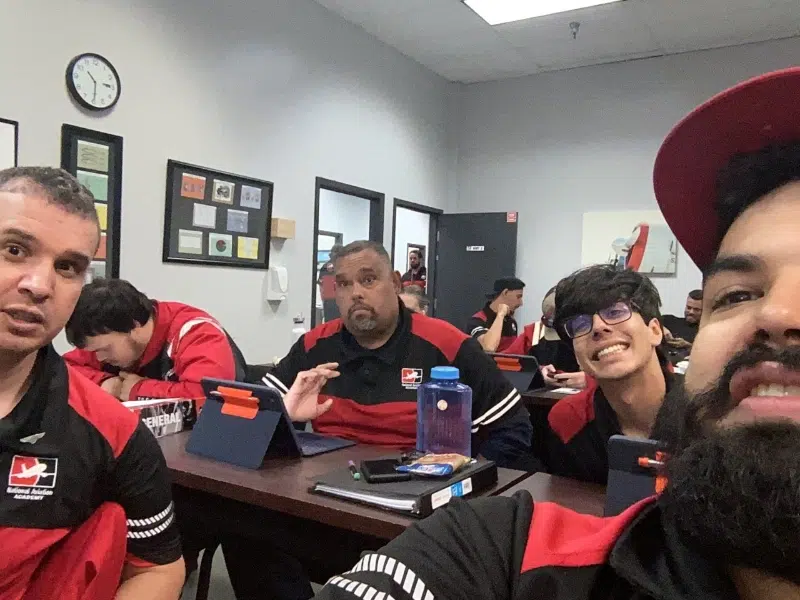Fund your Master’s degree with exclusive scholarships! Maximize your chances with additional tips and alternative financial aid options!
As university becomes more accessible, bachelor’s degrees have become more common. In order to distinguish themselves from a large candidate pool, many college graduates will seek to pursue Master’s degrees. Whether you’re in it for the practical qualifications or seeking to deepen your intellectual knowledge, you’ll need to face one key obstacle—paying for your Master’s degree.
At Scholarship Institute, our team is dedicated to ensuring you have the adequate resources needed to fund the education you’re passionate about. In this article, you’ll understand the purpose of Master’s students’ scholarships, how to find the right scholarships, and most importantly, how to win one! In addition, you might want to look into alternative forms of financial aid and potentially going abroad for a master’s degree. In that case, we’ve got you covered there as well!
Check out reviews of major scholarship websites to aid in your scholarship search!

What Are Master’s Degree Scholarships?
Master’s degree scholarships are precisely what their name implies: a financial award for students pursuing Master’s degrees. In contrast to a generic scholarship, these awards often have eligibility requirements that target Master’s students. This makes them less competitive for Master’s students and supports their financial need with accuracy.
Master’s degree scholarships are available from universities, private organizations, companies, and government agencies. These awards can reduce tuition costs and may cover expenses like textbooks, research, or conference travel. Securing a scholarship for a master’s program is especially desirable as students might already be financially independent of their families and will need to fund their education on their own.
You might be in a job you dislike because you need to fund something you’re passionate about. Find out how to balance your financial situation with your life goals in this article on what to do if you hate your job.
How to Find the Right Scholarships
Finding the right scholarships starts with using reliable scholarship websites, like Scholarship Institute and Bold.org, which offer a wide range of opportunities for students. These platforms allow you to set up profiles and use filters to narrow down scholarships that align with your academic level, interests, or career goals.
There are many different types of Master’s degree scholarships, many of them exclusive to specific degrees. You’ll increase your chances by applying for a scholarship that matches your degree and passions, so keep an eye out for these scholarships in addition to generic Master’s programs.

How To Win a Master’s Degree Scholarship
1. Start Your Search Early
Begin researching Master’s degree scholarships as soon as possible, ideally at least a year before your intended start date. Early preparation gives you enough time to gather all the necessary materials and apply for multiple scholarship opportunities.
2. Use Scholarship Search Platforms
Utilize scholarship websites like Scholarship Institute or Bold.org to find relevant opportunities. Set filters to match your field of study, financial need, or any specific criteria you meet, such as location or demographic. Platforms like these make it easy to find lots of scholarships in a certain category, like essay scholarships.
3. Tailor Your Applications
Customize each application to reflect the scholarship’s requirements and mission. Write essays or personal statements that align with the scholarship’s values and emphasize how receiving the award will help you achieve your educational and career goals. The field you intend to study will affect the focus of your essay, so make sure to show donors why you’re pursuing your major and how you can made a difference. You’ll also be able to find scholarships for any master’s degree program—check out these engineering scholarships if that’s the field you’re interested in.
4. Focus on Scholarships for Your Major or Field
Seek out scholarships specific to your intended Master’s degree or field of study. These scholarships tend to have fewer applicants and give you a better chance of winning if you meet the specialized criteria. Business is one of the most popular majors to pursue a Master’s degree in. Check out our list of MBA scholarships for funding ideas!
5. Check Eligibility Requirements Thoroughly
Carefully read through the eligibility criteria to ensure you qualify. Some scholarships may require a certain GPA, work experience, or specific achievements, so double-check all details before applying.
Check out exclusive scholarships sorted by demographics, major, and academic year to help you find scholarships you’re eligible for!

6. Prepare Strong Recommendation Letters
Request recommendation letters from professors or professional mentors who can speak to your qualifications, character, and potential. Give them ample time and provide them with any necessary information to write a compelling letter.
7. Craft a Winning Personal Statement
Write a clear, well-structured personal statement that reflects your goals, background, and how the scholarship will support your journey. Be authentic and demonstrate your passion for your chosen field.
8. Meet All Deadlines
Stay organized by keeping track of deadlines for each scholarship application. Submitting applications on time is crucial, as missing a deadline will disqualify you from consideration.
9. Follow Instructions Carefully
Adhere to all guidelines provided by the scholarship provider, including word counts, formatting, and additional documents required. Submitting incomplete or incorrect applications can lessen your chances of winning.

10. Apply to Multiple Scholarships
Increase your chances of success by applying to several scholarships rather than focusing on just one. Diversifying your applications can maximize your potential for financial aid.
Discover the best no-essay scholarships and apply to a few right now!
Most Expensive Master’s Programs
It may help you to understand the most expensive graduate programs, so you have a baseline of how much grad school can cost. Of course, your Master’s degree may cost significantly less, but it is wise to know the top line so you can budget effectively.
Medical School
Medical school tuition can exceed $60,000 per year, placing a significant financial burden on students pursuing a career in healthcare. Fortunately, various Master’s degree scholarships and grad school scholarships are available to help offset these costs for qualified applicants. Undergraduate and graduate students alike know that medical school costs often surpass just the tuition for a master’s program but also residency and PhDs so it’s best to start saving early.
There’s a wide variety of good medical schools across the country. Remember to look for scholarships depending on where you plan to attend school. For example, students down south can look through our Georgia scholarships for financial relief.
Law School
Law school tuition also ranks high, often surpassing $50,000 annually. This steep cost prompts many undergraduate students to seek out graduate school scholarships to alleviate their financial burden. With numerous funding options available, aspiring lawyers can find opportunities that help make advanced legal education more accessible. Given the high cost of pursuing a legal degree, apply to any of these law school scholarships that you’re eligible for.
Studying out-of-state can severely increase tuition fees. Decrease your costs with these scholarships for out-of-state students!
Alternatives to Master’s Degree Scholarships

Scholarships
You don’t have to restrict yourself to scholarships for graduate students. Many scholarships encompass all levels of study and you’re always increasing your chances by applying for more. Some other scholarships that might be suitable for graduate students may include scholarships based on your age, scholarships for parents, or scholarships for specific majors (e.g., computer science).
Grants
Grants are typically need-based financial awards that do not require repayment. Unlike scholarships, which may focus on academic performance or specific fields, grants often target students based on financial need. Many government agencies and private organizations offer grants for graduate students.
Loans
Student loans are borrowed funds that students must repay with interest, making them a significant financial commitment. Federal student loans are a common option for graduate students, offering lower interest rates and flexible repayment plans compared to private loans. It’s important for borrowers to understand the terms and conditions, as well as the long-term impact of taking on debt to finance their education.
Fellowships
Fellowships provide financial support, often combined with research or work experience in your field. These awards may be merit-based or require students to complete specific projects, research, or internships. Fellowships are a great way to gain practical experience while funding your degree. Graduate students enrolled in well-funded universities may have school-specific fellowship opportunities.
Jobs
Working part-time or securing a graduate assistantship can help cover tuition and living expenses. Some universities offer assistantships where students work on research or teaching in exchange for a stipend and tuition reimbursement. Additionally, many students work in their field while pursuing a degree, gaining both experience and financial support.
Consider boosting your grades with these top tutoring programs!

Master’s Degrees in Other Countries
Few students consider going abroad, but it can sometimes be cheaper to do so without sacrificing the quality of the graduate program. Not only are some tuition fees significantly cheaper, but many governments offer scholarships and fellowships to support international students.
Admission Requirements and Program Structure
Admission requirements for Master’s programs vary by country but generally include an undergraduate degree, a high GPA, letters of recommendation, and proof of English proficiency (e.g., TOEFL or IELTS for non-native speakers). Some countries, like the UK and Germany, may also require a research proposal or relevant work experience. Program structures differ as well; some emphasize research, others coursework, but many offer a combination of both.
Financial Considerations and Scholarships
Tuition fees vary widely, with European graduate programs often charging significantly lower fees than the United States and Australia. However, international students can explore scholarships, grants, and fellowships offered by universities, government programs, and private organizations. Additionally, some countries allow students to work part-time during their studies, helping to offset living expenses.
Pursuing a master’s degree abroad offers unique benefits, from experiencing new cultures to accessing world-class education. For graduate students interested in an international experience, studying in another country can be a transformative opportunity.
If you’re going to study outside of your country of residence, check out these scholarships for international students!

Popular Destinations for Master’s Degrees
United Kingdom
The UK is known for its prestigious universities, such as Oxford and Cambridge, and offers one-year Master’s programs, allowing students to complete their degree quickly. With a wide range of disciplines, UK institutions emphasize practical skills and global career opportunities.
Australia
Australia’s top-ranked universities, like the University of Melbourne, provide Master’s programs that blend theoretical and practical learning. Programs typically last one to two years, and international students can work while studying to help with living expenses.
Canada
Canada offers high-quality, affordable education, with institutions like the University of Toronto and McGill University known for their research-driven programs. Master’s degrees usually take two years to complete and are most similar to American programs.
Germany
Germany is famous for its tuition-free or low-cost public universities, such as the University of Heidelberg and the Technical University of Munich. Many programs are taught in English and focus on research, particularly in fields like engineering and science, making Germany a popular choice for international students.
Computer science is one of the most popular majors, and if you’re considering the subject, check out these scholarships for computer science students!
Frequently Asked Questions About Master’s Degree Scholarships
1. Are Graduate Scholarships the Best Way to Pay for Master’s Degrees?
Graduate scholarships are a valuable option for funding a master’s degree, as they do not require repayment and can significantly reduce financial burdens. However, they’re often very competitive, and the risk of not securing one may be too high for some grad students. The value of scholarships to fund Master’s degrees depends on each individual’s circumstances.
2. Does FAFSA Cover Graduate School?
Yes, the Free Application for Federal Student Aid (FAFSA) can be used to apply for federal financial aid for graduate school. This includes federal loans and some grants, which can help cover tuition and living expenses while pursuing a graduate degree.
3. Do Full-Ride Graduate School Scholarships Exist?
Yes, full-ride graduate school scholarships do exist, although they are highly competitive and often limited in number. These scholarships typically cover tuition, fees, and sometimes living expenses and are often offered by universities, private organizations, or specific programs aimed at attracting top students.
For more information on scholarships and education, our Scholarship Institute blog should be your next destination!

Ari Moriah
Ari's passion for education and student support forms the foundation of her contributions to Scholarship Institute, where she writes about finding scholarships and funding opportunities. With a strong commitment to helping students, Ari leverages her academic expertise in history and philosophy to guide them in finding resources for their education. She earned a B.A. from Pacific University, where she focused on Early American History and Late Antiquity/Early Medieval Greco-Roman Europe, complemented by a minor in Philosophy. As a writer, Ari draws on her research and educational background to inspire and assist students in achieving academic success.






